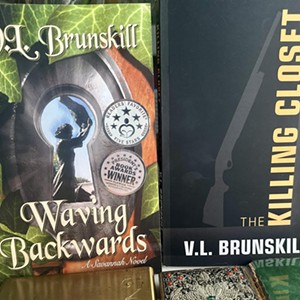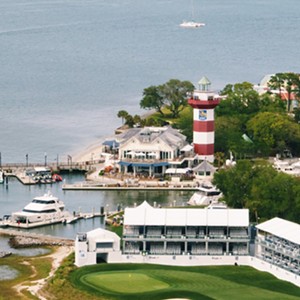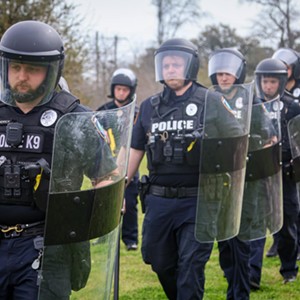I certainly have plenty of differences with this city government and its various elected and appointed officials. But one area in which I have nothing but good things to say about them is in their continued and sincere support for the arts.
The City of Savannah has a long track record of investing public money in arts and cultural services for its taxpayers. It's a civic trademark that bridges administrations, terms of office, and political party.
Black officials, white officials, Democrats and Republicans alike have all worked together for years to boost the arts in Savannah.
Supporting the arts is who we are as a city.
Far from mere lip service, this investment is in the form of dollars and cents, granted by the Department of Cultural Affairs under the control of the mayor and city council. Even in the current economic climate, the City is granting about $775,000 dollars in tax money to support local arts and cultural organizations in 2010.
While this is a good bit lower than the nearly one million dollars allocated in 2008 for events happening this year, given the grim national economy it's only a little shy of a miracle.
It speaks volumes that your city leaders are willing to make a substantial investment in the arts when they have every excuse not to. In good times or bad, public support for the arts is by no means a given. Many other much larger cities spend less on the arts than we do, and of course it shows.
Visitors to Savannah often remark how European the city feels. I think our civic support for the arts - so similar to how European governments subsidize cultural activities - has a lot to do with that.
Every year, I and the other members of the Cultural Affairs Commission observe a rite of passage: a week of meetings in early August to go through the various grant proposals and make our recommendations for allocating the city's arts budget. Those recommendations are then passed on to the mayor and city council, who as your elected representatives rightfully have the final say.
I want to describe this process to you, because I've noticed almost no one in town has any idea of what the Cultural Affairs Commission does, if they've even heard of it at all.
For most of the year, commissioners evaluate events that received city grants the previous year. We evaluate for several criteria, including audience demographics, attendance figures, and the most basic aspect of all: How well did the group deliver on its original proposal?
We also watch to make sure that city-funded events clearly credit the city for its sponsorship. We very much want taxpayers to know where their money is going, and we want them to know how committed the city is to the arts.
I'll say it again: It's who we are as a city.
In early August comes the real fun I mentioned earlier. We gather for several evenings at the Cultural Affairs headquarters on Henry Street, going over the various grant proposals for the following calendar year.
Some proposals stretch on for pages, going into great detail. Others are more, shall we say, pithy. But all receive equal attention based mostly on their potential value to the taxpayers.
We "grade" the grants based on a list of criteria, including the artistic quality of the programming, the per capita cost per taxpayer served, the diversity and relative strength of the organization's non-city funding, and whether or not the proposed event addresses the city council's stated arts objectives of furthering civic and economic development and providing involvement for youth aged 16-20.
It sounds dry and very bureaucratic. It's not. It's a hell of a lot of fun, is what it is.
Not only is it cool to be a part of such an important civic process, but I've been especially impressed by the seriousness and thoroughness with which my fellow commissioners go about the public's business - not to mention the professionalism and dedication of director Eileen Baker's staff at Cultural Affairs, who are too numerous to mention here individually but who are all awesome at their jobs.
If you have any gripes about the use of your taxpayer dollars - and of course we all do - I can tell you that the Department of Cultural Affairs should be the least of your worries.
During my three years on the Commission - terms are three years and you can serve two back-to-back - there is one area that has really opened my eyes as to how this city really works. It has to do with the composition of boards of directors of local nonprofit organizations, one of the Commission's criteria for evaluation.
Let me preface this by saying I'm usually not one to look at everything through the prism of race, nor am I one to advocate racial quota systems of any type.
But I must say that the lack of diversity on many local boards is nothing short of shocking. Predictable, maybe, but still shocking nonetheless.
Technically speaking, the Commission prefers arts organizations to have a board that is representative of the community they serve. We don't necessarily look for exact percentages, but rather we look for boards to have a reasonable amount of diversity - not just racially but in terms of gender, age, and background. As you might expect, however, the most glaring problems do come in the area of race.
Simply put, there are way too many local arts organizations with zero African Americans on their board asking for money from a city that is nearly sixty percent black.
A certain very high-profile, very high-quality and very high-dollar local arts event comes to mind, one which ironically offers programming that is extremely racially diverse.
Said event does have a few minority members on some subcommittees. But on its huge, 23-person main governing board, not a single African American or Latino is to be found.
Not one.
As for the usual response from many organizations about this concern - "minorities just aren't interested in joining our board" - that's a load of bull. (The close cousin of this lame excuse is "Well, our board's really a fundraising board," an even more ridiculous and borderline racist thing to say.)
In my experience in serving on other local boards, you always have to recruit, whether you're looking for minority members or for the lily-white old-money golf crowd that dominates most boards in Savannah.
It's unfathomable to me that so many really good local arts groups can be so off-base on this particular issue. The worst-case scenario in addressing this - the absolute most difficult thing they would have to do - is to appoint a subcommittee specifically for minority board development. How hard is that?
Am I suggesting finding "token" black and Latino board members just to fill spots? Of course not.
This is what I'm saying: There is no shortage of qualified and interested minority citizens who are as enthusiastic about promoting arts and culture as any white person here.
And I have not met a single African American - not one, ever - who was offended by a white person saying they want more diversity.
It's not tokenism, just common sense.
If you think all this is too much to ask, then frankly the city should probably find better things to do with taxpayers' money than give it to you.



























